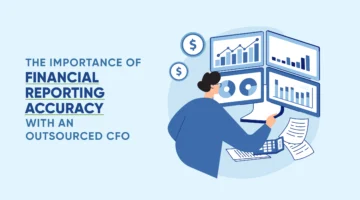4 Tips To Boost Your Small Business’s Cashflow
Small business owners face a multitude of challenges every day, from taking care of the customer end of things to ensuring their products or services are the strongest they can be. When it comes to the financial side of business, it can be overwhelming at times to maintain cash flow. Competitors, inventory issues, and economic changes all have an effect on small businesses.
Fortunately, there are some simple ways to cut back on expenses and grow your income. You might start by acquiring the services of a consulting firm like NOW CFO that can help you with everything from funding strategies to working out a budget. Then, think about how you can make financial decisions and transactions as easy as possible.
1. Find the right bank account
These days, there are a wide variety of bank accounts for both personal and professional needs, and they all have different features. Do a little research to find an account that will help you effectively stay on top of your finances.
Look to open an account that links with your payroll software, providing a streamlined and efficient way to pay your employees. The best business bank account will also have benefits like free instant deposit, high-yield interest, and an easy-to-use mobile app which allows you to handle your banking needs right from your smartphone. Having access to so many features will take the guesswork out of banking and give you some peace of mind when it comes to your business’s finances.
2. Cut expenses
Once your banking is squared away, it’s time to look at your budget and expenses. Most small businesses have a number of small expenses that really add up over the course of a year. The good news is, many of these can either be consolidated or eliminated, including monthly fees for software access, subscriptions to streaming services, or payment systems and credit card companies.
The best way to get started is to look for similar services that are free or discounted instead. Google offers a ton of free services and products, from email to spreadsheet and word processing platforms. Contact your preferred credit card companies to find out if they have a small business account that would benefit you, or consider changing your payment system to one that offers simple services in exchange for a lower monthly fee.
Keep in mind that you also have the option to deduct several expenses throughout the year, so it will be crucial to keep detailed records for tax time.
3. Branch out
After cutting back, it’s a good idea to look for new income opportunities. There are many ways you can market your business without adding stress or hours to your day, such as adding to your social media presence, creating engaging video content to share with customers, teaming up with other local businesses for promotions and events, and utilizing online advertising. Get creative and plan a strategy for different times of the year. For instance, if you own a floral business, look for ways to get your name out to high schools during prom season.
4. Stay on top of your invoices.
If you don’t have a great organizational system, you may be losing money. Cutting back on expenses and looking for new opportunities are both examples of preemptive measures, but your invoice and billing system should be well maintained every day. Take a look at the amount of time it takes to recover payment after an invoice goes out — a process that NOW CFO can help with — and consider changing things up for extra-large orders. For instance, you might require a deposit for orders over a certain amount to protect yourself.
Cashflow can be unpredictable for small businesses, but with the right moves, you can keep your finances in good shape and prevent setbacks. Utilizing professional services will ensure smooth transitions as you make changes and will help you reduce stress throughout the process.
-Amy Collett, Bizwell



